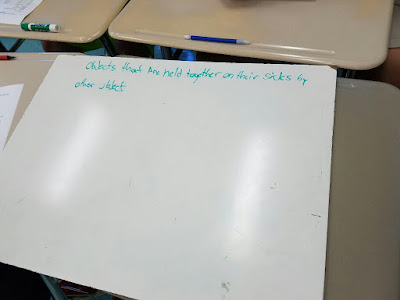Teachers are often expected to be perfect. From their first day in the classroom on their first year, they are supposed to have as much knowledge and expertise as someone who has been teaching for 30 years.
Yes, there are student teaching positions where you work under the supervision of a veteran teacher for a few months, but that's often the extent of the formal mentoring that teachers receive. Over the last few years, I've had numerous discussions with other educators about the various short-comings of education programs.
The reality is that teaching is incredibly difficult. It's difficult in a way that no one can fully explain and can only truly be experienced. According the National Education Association, an estimated 50% of new teachers quit the profession within the first 5 years. There are multiple reasons cited for this, including geographic concerns and shrinking school budgets unable keep salaries competitive, but you would be hard pressed to find a teacher who didn't acknowledge that their first few years were insane.
During my first year in my current district, I went home crying at least 3 nights a week for about 2 months.
One of the major issues contributing to how difficult it is to teach is our inability to make mistakes. On a conscious level, everyone knows that no one is perfect. Everyone makes mistakes and we recognize that we should admit those mistakes when make them.
But teachers are often held to a different standard, and understandably. No one wants another person making mistakes with their children. We are entrusted with the future, the custodianship and the care of children. During the school year, kids spend more time with teachers than they do with their families. No, we aren't given the nuclear launch codes, but it sometimes feels that way to a parent.
As teachers, especially those of us who espouse the virtues of the growth mindset, we know that mistakes are not only a basic fact of life, but are crucial to the learning process. Without mistakes, we don't grow, we don't learn, we don't advance.
Making the mistakes, however, isn't enough. We need to be able to examine them, see WHY we made them and reflect on how things can be done better the next time.
How can we expect our students to do this if we don't show them how and if are unwilling to do it ourselves?
One of the major reasons for this blog has been to shine light on the (many, MANY) mistakes that I make as an educator and as a person, for the purpose of reflection and growth. I feel as though that process has greatly helped me along the path to becoming the teacher that I want to be and that my students need.
So where is this all going?
Last year, I undertook two major school initiatives. The theme for the year was
Go Forth and Be Human. I dismissed my classes every day with that statement, reminding my students and myself that they are, above all else, people. They are more than test scores, more than students, more than children. They are human beings.
The second, and arguably more successful, was
#HighFiveFriday. This started by accident around Thanksgiving and took off like a shot! After 2 weeks, students began seeking me out for high fives. It helped to build a community and good feelings.
This year, I will continue both of those, while adding a new one. I want my students to be willing to make mistakes and learn from them. I want them to learn that those mistakes, when reflected upon, can lead to growth. I want to remember this myself and be more willing to make, admit and learn from my mistakes.
This year, we will doing #MistakeMonday!
Every Monday, we will begin class with a basic writing assignment consisting of two questions:
- What is a mistake that you made in the past week?
- How do you plan to learn from that mistake this week?
I will also partake in this assignment and share mine. As students feel comfortable, I will ask them to share theirs as well. We are a community of learners and will utilize every resource we have to achieve our goals, including each other. There will be times when a student may not know how to learn from a particular mistake, but there will be advice that others can offer.
I also plan to have a #MistakeMonday wall where students (who wish to) can post their mistakes and learning plans for all to see.
We share mistakes to demonstrate our vulnerability, the build empathy and grow as citizens.
It will be a long journey with (hopefully) many mistakes made along the way.
We are human beings. We are not perfect and need to stop pretending that we should be.
I wish you all a great year, full of productive mistakes!





































